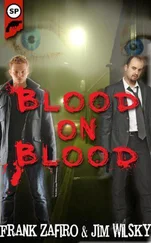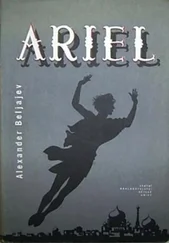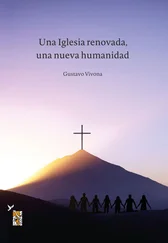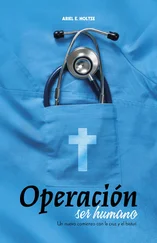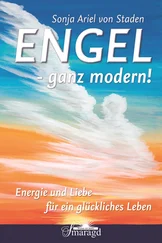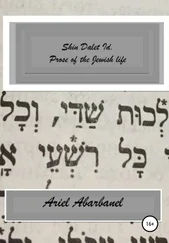Ariel Toaff - Blood Passover
Здесь есть возможность читать онлайн «Ariel Toaff - Blood Passover» весь текст электронной книги совершенно бесплатно (целиком полную версию без сокращений). В некоторых случаях можно слушать аудио, скачать через торрент в формате fb2 и присутствует краткое содержание. Жанр: Религиоведение, на английском языке. Описание произведения, (предисловие) а так же отзывы посетителей доступны на портале библиотеки ЛибКат.
- Название:Blood Passover
- Автор:
- Жанр:
- Год:неизвестен
- ISBN:нет данных
- Рейтинг книги:3 / 5. Голосов: 1
-
Избранное:Добавить в избранное
- Отзывы:
-
Ваша оценка:
- 60
- 1
- 2
- 3
- 4
- 5
Blood Passover: краткое содержание, описание и аннотация
Предлагаем к чтению аннотацию, описание, краткое содержание или предисловие (зависит от того, что написал сам автор книги «Blood Passover»). Если вы не нашли необходимую информацию о книге — напишите в комментариях, мы постараемся отыскать её.
Blood Passover — читать онлайн бесплатно полную книгу (весь текст) целиком
Ниже представлен текст книги, разбитый по страницам. Система сохранения места последней прочитанной страницы, позволяет с удобством читать онлайн бесплатно книгу «Blood Passover», без необходимости каждый раз заново искать на чём Вы остановились. Поставьте закладку, и сможете в любой момент перейти на страницу, на которой закончили чтение.
Интервал:
Закладка:
Friedrich was known as a fanatical and often naive collector of relics of all types. It is not therefore surprising that the objectives of his trip to Venice should have included a passionate and unrestrained hunt for relics, hawked about in abundance by wheeler-dealers and impertinent intermediaries at high prices, a fact noted with malicious humor by Michele Colli, a salt superintendent, in a report sent from Venice to the Duke of Milan, in which he cast doubt on Friedrich's alleged competence
p. 18]
where relics were concerned. According to the Milanese official, the Emperor, in this type of business, which he presumed to carry out directly and without regard to price, was a sucker to be plucked assiduously, adding, to add to the ridicule, half-seriously half facetiously, that "certain Greeks sold him dead bones including the tail of the ass that brought Christ to Bethlehem" [16] On Michele Colli's report to the Duke of Milan cfr Ghinzoni, Federico III imperatore a Venezia , cit., p. 151. See also D. Rando, Dai margini la memoria. Johannes Hinderbach (1418-1486) , Bologna, 2003, pp. 345-346. Michele Colli was probably a member of the entourage of Andrea Colli, Milanese ambassador at Venice, of whom he was a relative.
.
On this occasion, some supposed relics of Saint Vigilius found their way to Venice in the hands of a loving and faithful subject of Friedrich, Giovanni Hinderbach, a famous humanist and man of the Church who had traveled from Trent to the City of the Lagoons, not only to present the Emperor with the highly-valued relics, but above all as an act of gratitude, on the occasion of his receipt of his much sought-after investiture of the temporality of the episcopate of Trent. Again, it was Colli who informed the Duke of Milan that "His Illustrious Majesty invested the Bishop of Trent with a thousand temporal solemnities and celebrations" [17] Cfr. Rando, Dai margini la memoria , cit., p. 346. In 1452, Hinderbach had taken advantage of Friedrich's stay at Padua, on the way to Rome, where he was to be crowned Emperor, to obtain his own doctorate in a solemn ceremony, held in the cathedral, in the presence of large numbers of prelates, noblemen and academics, "quo actu nullus numquam insignior habitus, cui tot et tanti principes et nobiles interfuissent" [“in which act there was never anything more magnificent, there were so many princes and noblemen there”] (cfr. V. von Hofmann-Wellenhof, Leben und Schriften des Doctor Johannes Hinderbach, Bischofs von Trent, 1465-1486 , in "Zeitschrift des Ferdinandeums für Tirol und Vorarlberg", s. 3, XXXVII, 1893, pp. 259-262).
. But Hinderbach was not the only person to have undertaken the uncomfortable journey from Trent to Venice during the German Emperor’s distinguished presence in the city.
Tobias da Magdeburg was an obscure Jewish herb alchemist who, after traveling down from his native Saxony and finding exile among the mountains of the region of Trent, practiced the art of medicine and surgery with some success, at least on the local market. A few years later, he was to meet Hinderbach under much unhappier circumstances, under indictment for participation in the cruel ritual murder of Little Simon and admitting his guilt, he was to meet a cruel death at the stake, accompanied by the confiscation of all his goods [18] For the text of the depositions of Tobias of Magdeburg before the Trent judges during the 1475 trials for the death of Simon, son of Andrea Lomferdorm, see A. Esposito and D. Quaglioni, Processi contro gli ebrei di Trento, 1475-1478 . I: I processi del 1475 , Padua, 1990, pp. 307-348. See also G. Divina's argument in Storia del beato Simone da Trento , Trent, 1902, vol. II, pp. 8-12; pp. 45-47. Quaglioni (" Orta est disputatio super matheria promotionis inter doctores ". L'ammissione degli ebrei al dottorato , in "Micrologus. Natura, scienza e società medievali", IX, 2001 [Gli ebrei e le scienze], pp. 249-267) examines in detail the deposition of the physician Tobias at the Trent trial, whose confession was extorted "con torture raffinatissime che conducono l'inquisito in punto di morte" [“with exceedingly refined methods of torture which practically kill the person under investigation”], but he nonetheless considers it a document rich in details of indubitable truthfulness.
.
Maestro Tobias appears to have been acting in accordance with other motives during the Emperor’s official visit to Venice, particularly, the possibility of meeting large groups of German Jews arriving from the other side of the Alps along with Friedrich’s baggage train, many of whom Tobias looked forward to seeing again after years of involuntary separation. There was no shortage of German Jews at Venice in February of 1469: disciplined, humble, but totally self-absorbed and self-interested.
In his depositions before the judge of Trent in 1475,Tobias was not exaggerating when, after recalling his own presence in the city during "His Most Serene Highness’s visit to Venice”, he stressed that many Jewish merchants, in crossing the Alpine barrier, had actually traveled from the German territories to the City of the Lagoons for the purpose of acquiring a wide variety of high-priced goods without paying taxes or duty of any kind, passing them off
p. 19]
as goods owned by the Emperor, in whose baggage train they were said to have found their way back to Germany. This astute and bold stratagem was well worth the physical and economic cost of the difficult trip to the city of the Doges [19] "Tempore quo Serenissimus Imperator erat Venetiis, modo possunt esse VI vel VII anni, ipse Thobias reperit se Venetiis [...] et dicit quod tunc erat ibi magna multitudo Iudeorum, qui tunc venerant Venetiis post Serenissimum Imperatorem, causa emenda merces, ad finem ut non haberent causam solvendi gabellas pro mercibus predictis, quia illas tales mercea postea mittebant cum preparamentis seu caribus prefati Serenissimi Imperatoris, dicendo quod erant bona prefati Domini Imperatoris" [Approximately: “During the Emperor’s stay at Venice, perhaps about 6 or 7 years ago, this Tobias found himself at Venice, too […[ and he said that there were great multitudes of Jews there, who followed the Emperor to Venice to sell goods, since they didn’t have to pay any duty on those goods, because they took the goods with them in the Emperor’s baggage train, saying they belonged to the Emperor:”] (cfr. Esposito and Quaglioni, Processi , cit., vol. I, pp. 328-329).
.
But Tobias’s presence in Venice was not due to any mere nostalgia for the people among whom he had been born and grew up. As a physician, and as a Jewish physician in particular, he knew that the Emperor, during his visit, would, as he was normally accustomed to do, grant doctoral degrees in medicine to a swarm of more or less highly recommended candidates, including a few Jews. In fact, it was during that same February of 1469 that Friedrich granted a license permitting the College of Physicians of San Luca, an institution of higher learning teaching students of various origins -- not just Venetians -- to confer the insignia of Imperial Authority upon eight medical degrees per year [20] The privilege granted by Friedrich to the Board is dated 16 February 1469 (cfr. R. Palmer, The "Studio" of Venice and its Graduates in the Sixteenth Century , Triest-Padua, 1983, p. 58). With regards to the imperial visit to Italy in 1452, Enea Silvio Piccolomini, in his Historia Australis reported that "multos [doctores Federicus] in Italia promovit, quibus aurum pro scientia fuit" (cfr. M.J. Wenninger, Zur Promotion jüdischer Ärzte duch Kaiser Friedrich III , in "Aschkenas", no. 2, p. 419). The Diario Ferrarese reports that Friedrich III, visiting Ferrara in 1452 after the Roman coronation, was received in a solemn ceremony by the Marchese Borso d'Este and the bishop of Ferrara, "con tutta la chierexia et multi doctori ferraresi" [“with the whole hierarchy and many learned men from Ferrara”], cit., in R. Bonfil, Rabbis and Jewish Communities in Renaissance Italy , Oxford, 1990, p. 87.
. Enea Silvio Piccolomini, later Pope Pius II, recalled the manner in which Friedrich graduated a swarm of medical students during his second visit to Italy.
Интервал:
Закладка:
Похожие книги на «Blood Passover»
Представляем Вашему вниманию похожие книги на «Blood Passover» списком для выбора. Мы отобрали схожую по названию и смыслу литературу в надежде предоставить читателям больше вариантов отыскать новые, интересные, ещё непрочитанные произведения.
Обсуждение, отзывы о книге «Blood Passover» и просто собственные мнения читателей. Оставьте ваши комментарии, напишите, что Вы думаете о произведении, его смысле или главных героях. Укажите что конкретно понравилось, а что нет, и почему Вы так считаете.


